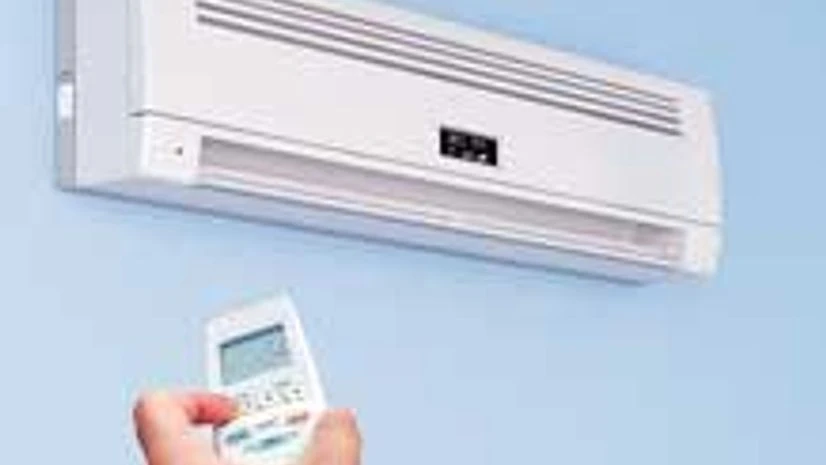Air conditioner (AC) manufacturers in the country are embracing the new energy efficiency standards sooner than expected. Although the new norms are slated to become mandatory from January 2018, popular brands such as Blue Star, Voltas and Carrier Midea, among others, have already tweaked their manufacturing processes. These companies are hopeful that stringent energy efficient standards will benefit the industry, further helping grow the market for ACs in India.
The implementation of new standards, which companies can follow voluntarily from this year onwards, will lead to drop in prices by up to 20 per cent, said B Thiagarajan, executive director, Blue Star.
“Since a five-star rated AC will be labelled three-star, a consumer will get better benefits, in terms of lower power bills. This will bring down the running cost of an AC, encouraging them to shift towards higher rated products. Also, it will attract new consumers,” Thiagarajan said.
The penetration of ACs in India remains low at three per cent, compared to the global average of 60 per cent. The market for ACs in India is expected to touch five million this year. However, industry executives say, there is ample growth opportunity ahead.
“The introduction of new star rating norms for ACs is a great move, further enhancing the energy efficiency of air conditioners in India. The government policies on eco-friendly norms and efficient use of products will give the much-needed boost to the demand for ACs in India. Being a responsible industry player, Videocon would continue to provide energy efficient products with captivated costs, giving maximum benefits to our valued customers.
The use of intelligent compressor regulators would result in consumers purchasing ACs with higher efficiency, leading to lower electricity bills,” said Abhijit Kotnis, chief manufacturing & procurement officer, Videocon.
While the new standards were formulated in 2014 by the Bureau of Energy Efficiency (BEE), manufacturers hailed its decision to give them a four-year window, before making the standards mandatory. According to Thiagarajan, prices of inverter ACs — more energy efficient than current five-star rated ones — may come down. Currently, a five-star rated AC saves 28 per cent more energy than a one-star product, while inverter ACs save 40 per cent more. Once in place, a five-star AC will consume up to 60 per cent less electricity — higher than an inverter AC. “We support this initiative of BEE’s, which will reduce operational expenses for the customer by consuming less energy,” said Krishan Sachdev, managing director, Carrier Midea India.
Pradeep Bakshi, president & chief operating officer, Voltas India, said, “We are ready to comply with the new guidelines set for 2018 and will continue to provide energy efficient products to our customers.”
The implementation of new standards, which companies can follow voluntarily from this year onwards, will lead to drop in prices by up to 20 per cent, said B Thiagarajan, executive director, Blue Star.
“Since a five-star rated AC will be labelled three-star, a consumer will get better benefits, in terms of lower power bills. This will bring down the running cost of an AC, encouraging them to shift towards higher rated products. Also, it will attract new consumers,” Thiagarajan said.
| DON’T SWEAT IT! |
|
The penetration of ACs in India remains low at three per cent, compared to the global average of 60 per cent. The market for ACs in India is expected to touch five million this year. However, industry executives say, there is ample growth opportunity ahead.
“The introduction of new star rating norms for ACs is a great move, further enhancing the energy efficiency of air conditioners in India. The government policies on eco-friendly norms and efficient use of products will give the much-needed boost to the demand for ACs in India. Being a responsible industry player, Videocon would continue to provide energy efficient products with captivated costs, giving maximum benefits to our valued customers.
The use of intelligent compressor regulators would result in consumers purchasing ACs with higher efficiency, leading to lower electricity bills,” said Abhijit Kotnis, chief manufacturing & procurement officer, Videocon.
While the new standards were formulated in 2014 by the Bureau of Energy Efficiency (BEE), manufacturers hailed its decision to give them a four-year window, before making the standards mandatory. According to Thiagarajan, prices of inverter ACs — more energy efficient than current five-star rated ones — may come down. Currently, a five-star rated AC saves 28 per cent more energy than a one-star product, while inverter ACs save 40 per cent more. Once in place, a five-star AC will consume up to 60 per cent less electricity — higher than an inverter AC. “We support this initiative of BEE’s, which will reduce operational expenses for the customer by consuming less energy,” said Krishan Sachdev, managing director, Carrier Midea India.
Pradeep Bakshi, president & chief operating officer, Voltas India, said, “We are ready to comply with the new guidelines set for 2018 and will continue to provide energy efficient products to our customers.”

)
